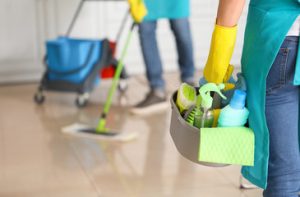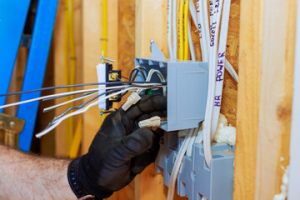
Cabinets dominate small kitchens, influencing the room’s mood and function. Cool light greens energize prep-heavy spaces, while warm yellows brighten morning greetings and evening gatherings.
San Jose Cabinet Refinishing preserves the majority of existing cabinetry, diverting waste and reducing cost compared to refacing. It also opens doors to storage upgrades, maximizing efficiency without adding significant cost.
Visual Impact
Cabinets are a staple of any kitchen, defining the overall design and creating an aesthetic that sets your space apart. Over time, cabinets can show signs of wear and tear that diminish their visual appeal. When this occurs, homeowners are faced with a difficult decision—should they opt for a complete replacement or consider cabinet refinishing? Both options can offer positive results, but the final choice depends on several factors.
Refinishing is a cost-effective solution for homeowners who desire a fresh, updated look without spending the money and time on a full remodel. The process involves stripping the existing finish, repairing any damage and applying a new stain or paint. This option works well for both wood and engineered wood (MDF) cabinets, allowing you to maintain the integrity of the original cabinet boxes while updating their appearance.
Choosing cabinet refinishing over replacement is an eco-friendly option, which helps to minimize landfill waste. In addition, the refinishing process can be completed in a shorter timeframe than a full remodel, minimizing disruptions to your daily life.
The benefits of cabinet refinishing are numerous, including improved aesthetics and functionality. With proper care, refinished cabinets can last 10-15 years or more, offering long-term value. In comparison, refacing provides a more long-term solution, as factory-finished materials are built to withstand heat, moisture and everyday wear and tear.
Additionally, refinishing your cabinets can help to boost your home’s resale value. As more buyers prioritize green remodeling projects, this simple upgrade will add a significant amount of value to your property.
Color Choices
The right color choice can transform your kitchen into the heart of your home. Whether you prefer the serene serenity of soft neutrals or the bold energy of vibrant hues, there’s a cabinet paint color to suit every style.
Lighter shades reflect natural light and create the illusion of a larger space. They’re a popular choice for small kitchens, but they pair well with almost any design style. Lighter hues also work well for kitchens with stained wood or natural stone countertops.
Creamy white cabinetry is timeless and versatile, pairing with virtually any kitchen design and decor. For a modern take on the classic shade, try a mushroom tone that reads as a soft neutral but brings out the warm tones in honed marble and rich wood tones.
Earthy greens are another popular kitchen color, ranging from soft pastels to moody leafy tones. Depending on the lighting, they can read as sandy neutrals or sophisticated greens. Earthy tones work well for rustic kitchens and pair beautifully with wood grain finishes, veined marble, and brass hardware.
If you want a more dramatic statement, go for a deep charcoal gray. This neutral works well with many other colors, including a wide range of oranges, and provides an elegant contrast to stainless-steel appliances. Darker shades like this can make a bold statement, but they can also hide scuff marks and scratches well in high-traffic areas.
Space-Enhancing Finishes
Choosing high-gloss finishes on kitchen cabinetry can help a small room feel bigger by bouncing light around the space. This effect can also be enhanced by skipping knobs and handles altogether perfect for stashing not-in-use tea towels, add an extra dose of sleek style and practicality.
Maximizing cabinet and pantry spaces is a must for a tiny kitchen. Innovative storage solutions such as pull-out shelves, lazy Susans, and drawer organizers can maximize space for storing food and cookware while keeping items organized and easy to access. Add shallow shelving between cabinets for displaying attractive dishware or decorative accents.
Emphasizing vertical lines with cabinetry is another trick for enhancing a small kitchen’s size. Use vertical slats in door panels, tall narrower cabinetry, or a mix of open and closed cabinets to draw the eye upward and create a larger-feeling space.
If you want a more streamlined look, opt for a neutral palette that is free of distracting color. If you’re still craving a pop of color, make it a feature rather than an overwhelming hue. Bold accents like the burnished brass taps can elevate your space with grandeur that belies its diminutive dimensions.
Timelines
A cabinet refinishing project takes significantly less time than installing new cabinets, but there are several factors that can affect the duration of your project. Understanding these factors can help you plan for and prepare for the project timeline.
Cabinet refinishing requires extensive prep work, including sanding and priming. Depending on the size and condition of your cabinets, this stage can take up to a few days. If you choose a high-quality finish, additional coats may also require drying time.
Professionals who refinish cabinets are familiar with the techniques required for the job and can manage timing based on weather conditions to ensure that finishes dry evenly. They can also reduce waiting times by using fast-drying paints, which can be a significant benefit in homes with busy lifestyles.
Minimizes Dust and Mess
Tearing out old cabinets and reinstalling new ones generates a considerable amount of dust and debris that can disrupt your daily routine. The refinishing process, on the other hand, is much faster and more efficient, saving you weeks of inconvenience.
Refinishing doesn’t involve removing cabinet doors and hardware, so it typically requires less time than cabinet replacement. However, you’ll need to be prepared for limited access to your kitchen for a few days. Professionals create a clean working area to minimize the mess and limit the effects on your family’s schedule.
The right color can instantly make your small kitchen feel bigger and more spacious, a trick that also works well for other materials, such as countertops, backsplashes, flooring, and lighting. Experts can provide recommendations based on your unique preferences and budget. They can also incorporate smart kitchen storage solutions to optimize space and create a cohesive design for your small space that is both functional and visually appealing.
Cost-Effective Upgrades
Refinishing offers a cost-effective way to update your kitchen, especially when compared to refacing or replacement. It also requires less upfront expense and downtime — a welcome advantage in small kitchens.
In addition, refinishing is environmentally friendly. By reusing existing materials, the project significantly reduces waste and minimizes your home’s carbon footprint.
Cabinet refinishing can be used to revitalize your current kitchen, and it’s the perfect solution for homeowners who aren’t ready to commit to a full kitchen remodel. The process is simple and fast, allowing you to enjoy your new kitchen sooner than you might imagine.
Before starting the refinishing process, it’s important to clean your cabinets to remove any dirt and grime. Use a gentle cleaner formulated for wood cabinets and a soft cloth or sponge to wipe down the surfaces. Make sure to pay special attention to areas around hardware, where grease often accumulates.
Once your cabinets are clean and dry, they’re ready to be sanded and prepped for the new finish. The final step in the process is to apply a protective sealant that enhances durability and protects your investment from future wear and tear.
During the refinishing process, you can add additional upgrades to your kitchen to further enhance its functionality and appeal. Installing under-cabinet lighting, for example, illuminates your countertops and improves workspace visibility while adding a modern, attractive aesthetic to your kitchen. You can also add pullout pantries to maximize storage space in your refinished cabinets.
Choosing the right finishes and colors for your cabinets can dramatically affect your kitchen’s look and feel. Lighter shades can reflect natural light and create a sense of spaciousness, while dark finishes can offer a sophisticated aesthetic that’s ideal for high-end kitchens. If you’re unsure of which shade to choose, a professional can help you find the perfect fit for your style and budget.



